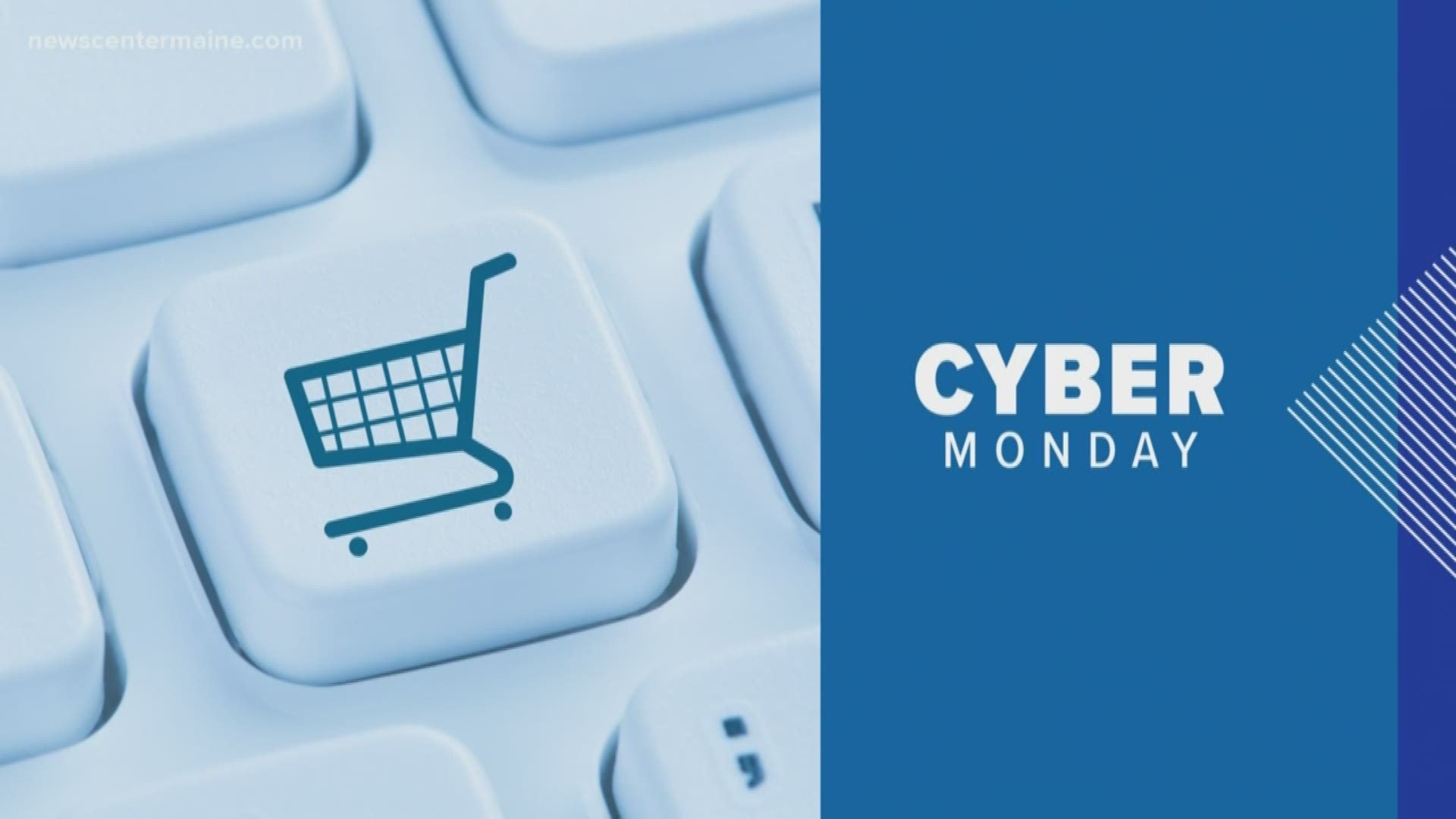MAINE, USA — The time between Thanksgiving and Christmas is limited this year, which means shoppers have even fewer days to check off all of the items on their gift lists.
That's why Cyber Monday is a great opportunity for people to cram in the rest of that buying -- and it allows for some awesome deals, too.
In 2018, consumers spent $7.9 billion on Cyber Monday, according to CNBC via an Adobe Analytics report. That was a more than 19 percent increase from the year before -- and this year's spending numbers are expected to be even higher, at an estimated $9.4 billion.
The big rush, though, can mean that the day is a target for online scammers. So when shoppers log onto their computers, they should keep in mind some of these safety tips from CNBC.
Don't click on links in emails
It's a technique known as "phishing" -- hackers will send you a link for a supposed discount, and the next thing you know, they're asking for your personal or credit card information.
If you do receive an email with a link, play it safe, and type in the name of the retailer into your search browser, instead. If the discount is real, you will be able to find it there.
Avoid pop-ups or advertisements
These types of ads can be alluring, but don't be fooled -- if you click on them, they can send you to sites that ask for personal information, or install spyware or ransomware onto your device.
If a deal is legitimate, it will be on the company's website -- so avoid the attractive language on pop-ups, and stick to the basics on the company's website.
Use a credit card
When it comes to online shopping, you should always try to use a credit card. That's because if you do fall victim to fraud, the Fair Credit Billing Act says that consumers are only responsible for up to $50 of those charges.
Some credit card companies like American Express, Discover, Mastercard, and Visa even have policies that make it so you don't have to pay at all for fraudulent charges.
Use a secure network while shopping
Make sure you're logging onto a private Wi-Fi network or hotspot when you're browsing the Internet for good deals.
If you choose to do your shopping on a public Wi-Fi network, you could run the risk of a hacker sneaking onto your device to watch you input your credit card or personal information.
If you do have to log onto a public network, use a Virtual Private Network (VPN), which is an encrypted connection from a device to a network.
Change up your passwords
You've heard it before, but we'll say it again -- don't use the same password for all of your accounts!
If a hacker is able to steal one password, they will use it to try to break into other accounts -- and that will put your personal data at risk.
If you see a retail rewards program offer pop up, use a different password, because these offers can sometimes be phishing attempts.
Happy shopping, everyone!

